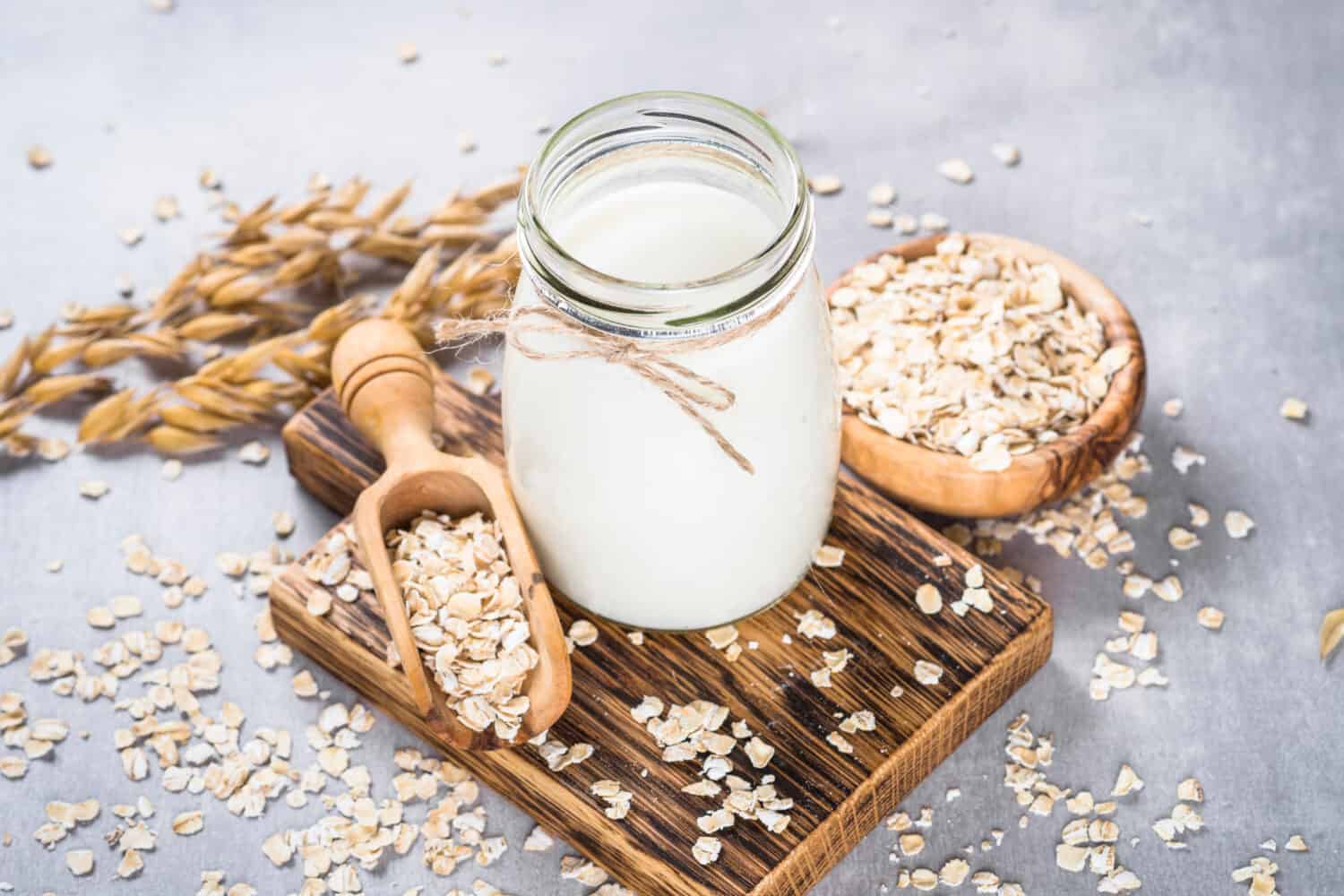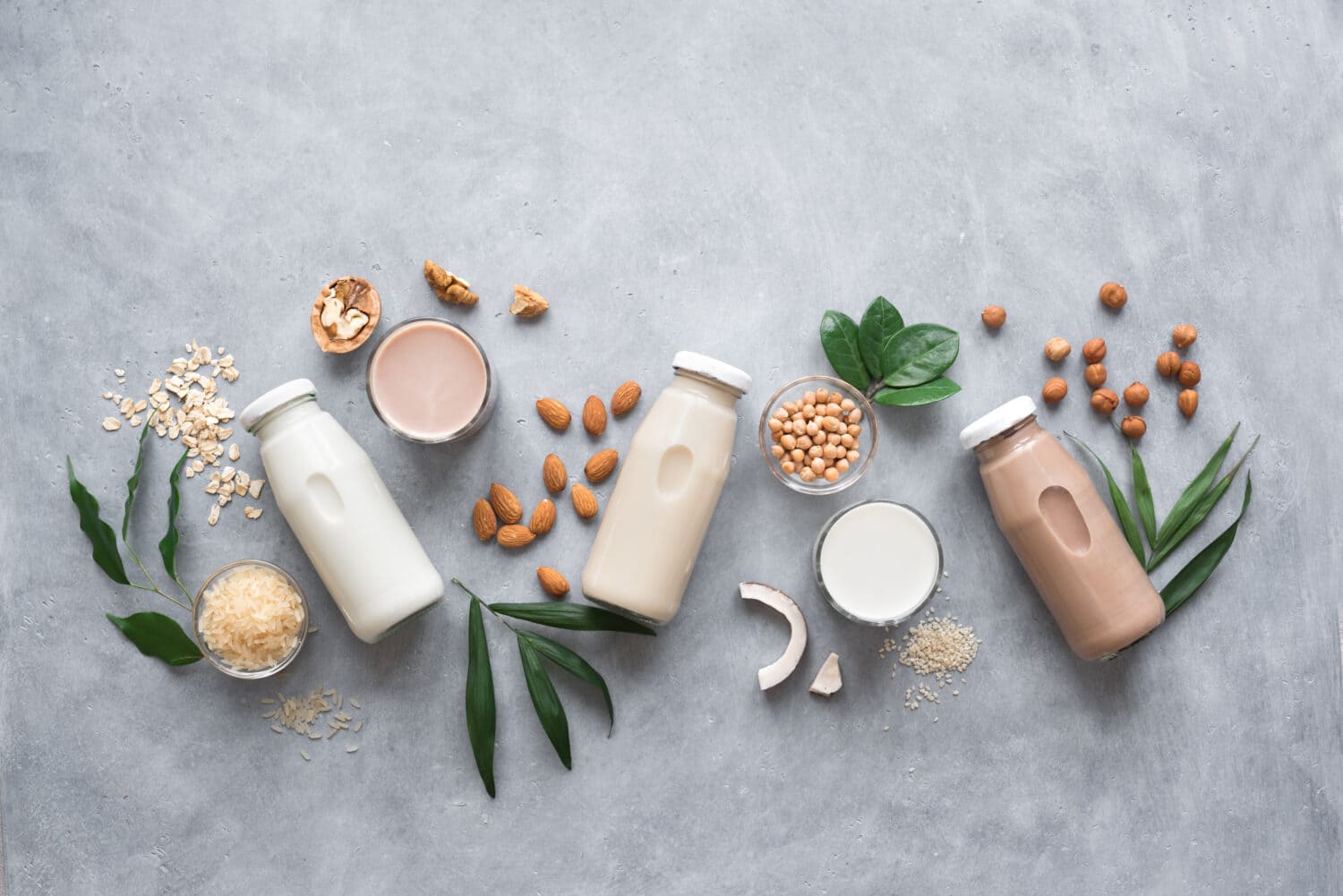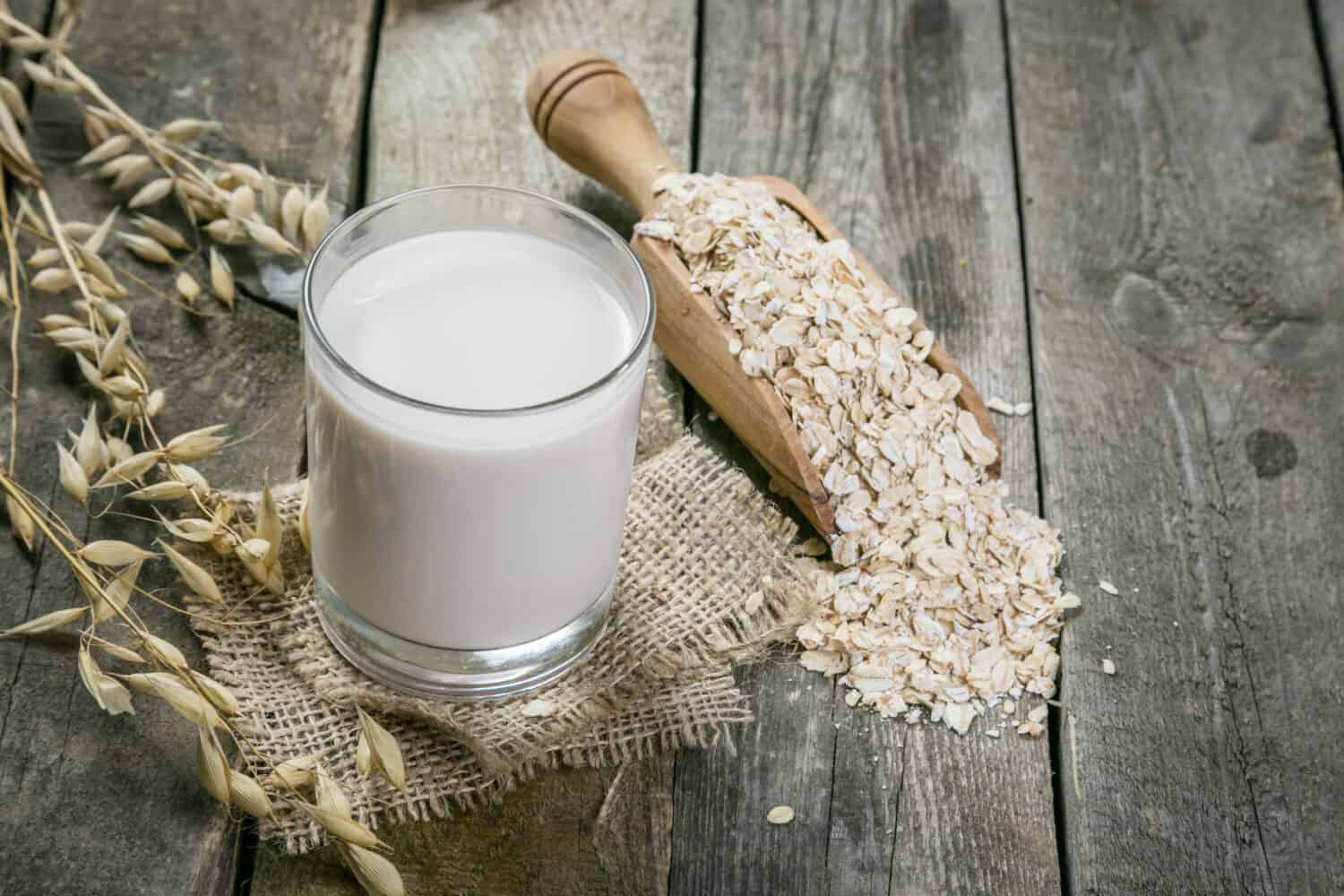In recent years, non-dairy alternatives have become a hot commodity. Plant-based options are all the rage, offering a substitute for cow’s milk that appears to be widely embraced among vegans, non-vegans, lactose intolerant, and non-lactose intolerant alike. In fact, statistics suggest the growth of the milk substitute industry is so exponential that it will hit a new peak in 2028. We are likely on track for non-dairy alternatives we haven't even considered yet! Arguably, one of the most popular alternatives currently on the market, however, is oat milk — a liquid created from soaking oat grains in water. But is oat milk healthy? While the bottom line is that it isn’t “bad” for us, it certainly has its pros and cons. We’re taking an in-depth look at its flavor profile, what it’s used for, and its health benefits and disadvantages.

©nadianb/Shutterstock.com
What is Oat Milk, and Where Does it Come From?
Lactose-free and vegan-friendly, oat milk is a plant-based, non-dairy alternative to milk. The general idea is that rolled oats are soaked in water to create a pulp. It is then blended and strained to remove any impurities, leaving a milky, whitish liquid. And voilà, you have oat milk.
What Does Oat Milk Taste Like?
Somewhat surprisingly, many people describe the flavor of oat milk as a sweeter, nuttier version of cow’s milk. With a higher carbohydrate content and creamier consistency than many of its fellow plant-based counterparts, oat milk works well for both baking and frothy beverages such as lattes. Of course, if you’re expecting it to taste just like cow’s milk, you might be thrown by its oatmeal-esque flavor. For variations on the flavor profile, you can also try sweetened, unsweetened, vanilla, and chocolate versions of it.

©Oksana Mizina/Shutterstock.com
Oat Milk vs. Cow's Milk: What are the Similarities and Differences?
In a nutshell, oat milk is healthier than whole milk when it comes to fat content. Comparatively speaking, oat milk has the equivalent of (or perhaps even more than) the unsaturated fats in whole milk, otherwise known as “healthy fats.” It also lacks cholesterol, while whole milk has roughly 24 milligrams per cup. Believe it or not, oat milk and cow's milk typically contain a similar number of vitamins and minerals, as store-bought oat milk has added nutrients more often than not.
What are the Health Benefits of Oat Milk?
The benefits of oat milk are plenty. For one thing, it's more environmentally sustainable than some other non-dairy milk alternatives, such as almond milk. This is because oats don't take up much land for growth, and they don't require a ton of water. As quoted in Ethical Consumer, “Soya and oat milk are the most environmentally friendly plant-based milks. They have remarkably low impacts, compared to cow’s milk, whether you’re considering resource use or emissions per litre or by amount of calories and protein.”
Additionally, oat milk doesn't contain saturated fats, so it's a game-changer for those who suffer from heart disease or other heart health issues. It is also high in fiber, chock full of vitamin B (which combats stress and promotes healthy hair, nails, and skin), and helps control blood sugar levels.
Studies on oat milk consumption have suggested a number of other positive effects as well, including a decrease in cholesterol levels, a strengthened immune system, and a reduction of blood clot formation. While the research isn't indisputably conclusive, it mostly leans toward positive results.
Perhaps the greatest health benefit of oat milk is its use for those with dietary restrictions. Made from only oats and water, it's a solid choice for anyone who's vegan. Additionally, it's nut-free, lactose-free, and soy-free. Moreover, those who possess an intolerance for lactose or are allergic to milk are in the clear. While it isn't innately gluten-free, and most grocery store oat milk selections aren't suitable for a gluten-free diet, oat milk can be made from certified gluten-free oats.
What are the Health Detriments of Oat Milk?
While oat milk certainly offers numerous health benefits, it also has a few notable downfalls. To start, it is naturally high in carbohydrates, and sweetened or flavored versions are typically high in calories and sugar.
Specific content also differs from oat milk to oat milk — on the surface, it may appear they are all equal. However, a closer look at the ingredient list can raise a few flags. Some oat milk, for example, contains a high number of additives. Others may not contain any protein or unsaturated fats, which means they aren't sustainable for your diet in the long term. In general, it's important not to rely strictly on oat milk for all of your nutrient consumption. Pairing it with other protein-based items, such as eggs or tofu, can make all the difference!

©Oleksandra Naumenko/Shutterstock.com
Making Oat Milk at Home
Making oat milk at home isn't nearly as challenging as it might sound. For one thing, it only requires oats and water — pretty simple, right? To be fair, it's also easier on your wallet than most of the store-bought options out there. Even better, making it at home means you know exactly what's going into your oat milk, and it allows for some freedom when it comes to customization. You can use certified gluten-free oats or add flavoring to your liking. The only downside is the lack of added nutrients that most store-bought oat milk contains — homemade versions lack the vitamin content. Nevertheless, if you're up for trying your own version, here's how to do it:
- In a blender, add three cups of cold water (the temperature is important to keep your milk from getting slimy!) to one cup of rolled or steel-cut oats. Blend them well for 30 seconds.
- Using a muslin cloth to strain the pulp, separate the oats and milk into a mason jar. You may need to gently squeeze it to get out the remaining liquid. Squeezing gently is key! This also prevents your oat milk from getting slimy.
- If you want to add flavor, some options are vanilla extract, a pinch of sea salt, honey, and maple syrup.
- Your homemade oat milk will keep in the refrigerator for up to five days

©Erhan Inga/Shutterstock.com
Important Takeaways
- Oat milk is a plant-based, non-dairy alternative to cow's milk that tends to offer the thicker “creamy” consistency of cow's milk.
- Because of its texture, oat milk is a wonderful plant-based alternative for baking and coffee beverages.
- Substituting oat milk for whole milk can aid in lowering your saturated fat intake and cholesterol.
- Oat milk is higher in carbohydrates and calories than other alternatives such as almond milk.
- Oat milk isn't high in protein, so it's important to supplement your diet with other protein sources to ensure you are getting all of the nutrients you need.
- You can make oat milk at home! All you need is a little ambition and a few staple ingredients.
Up Next:
- Oat Milk vs. Almond Milk: Which is Healthier & 3 Key Differences
- Rolled Oats vs. Old-Fashioned Oats: 3 Key Differences
- Goat Milk vs. Cow Milk: 3 Key Differences from Digestibility to Taste
The image featured at the top of this post is ©Oleksandra Naumenko/Shutterstock.com.